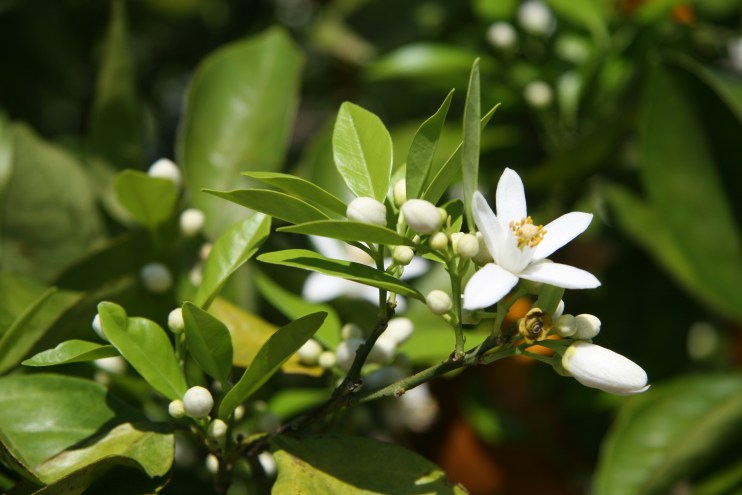By Tripti Vashisth

Florida flower bud induction advisories for the upcoming season start on Nov. 15. These advisories will be published biweekly until March 30, 2024.
The goals of flower bud advisories are to inform growers about the status of the tree in respect to floral bud induction and to predict bloom. This is critical information since the horticultural practices to manipulate flowering, when applied at the right time, can improve the crop.

Growers are encouraged to critically assess their problems in regard to flowering before applying any strategies. For example, the goal may be to reduce flowering in a variety that flowers excessively and the fruit remains small, or it may be to suppress flowering where tree canopy is sparse and excessive fruit drop occurs. In such cases, a gibberellic acid (GA) application during a low to moderate flower bud induction period is recommended.
Flower bud advisories are driven by the Citrus Flowering Monitor, which predicts dates when citrus trees will bloom based on observed and predicted weather patterns and other parameters (cultivar, expected yield, tree age and soil type). Growers can enter parameters specific to their grove to get a prediction. Knowing the bloom date is important for managing bloom and other related events. The Citrus Flowering Monitor also gives specific recommendations on how to manage bloom.
Growers should pay attention to flower bud advisories because they discuss the predicted bloom and best practices to follow at that time of year for optimum flowering. Keep track of induction hours in your area and watch for projected warm periods from the weather services.
Normal, healthy trees could have their induction boosted by applying some drought stress. Unfortunately, with vulnerable root systems associated with HLB, growers shouldn’t risk heavier preharvest fruit drop of the current crop by using water stress to prevent unwanted early vegetative growth and enhance induction of flowers. Starting this year, each advisory will carry additional recommendations regarding use of GA to manipulate flowering.
Tripti Vashisth (tvashisth@ufl.edu) is an associate professor at the University of Florida Institute of Food and Agricultural Sciences Citrus Research and Education Center in Lake Alfred.
Share this Post
Sponsored Content










